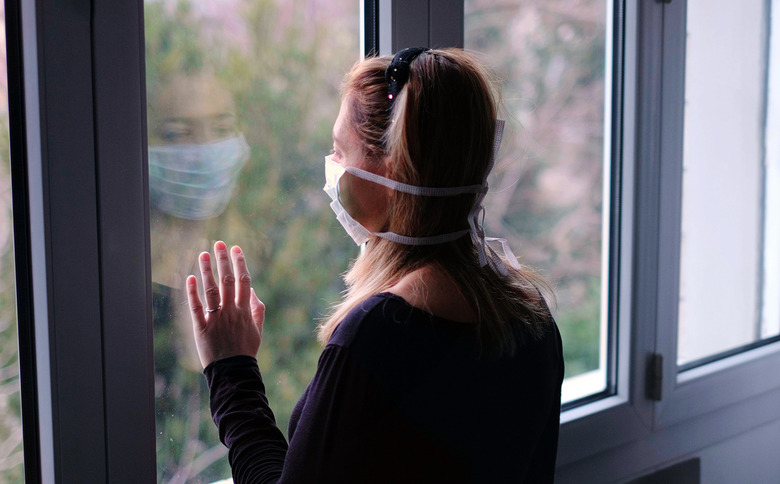This Is One Of The Scariest Things About COVID-19, So Why Aren't People Talking About It?
- A new research study reveals that many recovered coronavirus patients can exhibit lung damage months after the fact.
- The study tracked dozens of coronavirus patients who at one time experienced severe COVID-19 symptoms.
- Similar to what other studies have found, most coronavirus patients with severe symptoms were older men with pre-existing comorbidities.
- The ongoing symptoms that can continue to plague coronavirus survivors are sometimes even quite severe, yet not enough people are talking about this aspect of the disease.
One of the scarier aspects of the coronavirus is that it can sometimes cause lingering symptoms that may never fully disappear. Back in July, for example, a CDC report revealed that some coronavirus patients, even months after recovery, were still experiencing symptoms like fatigue, cough, congestion, dyspnea, loss of taste and smell, chest pain, and confusion. We'll obviously know more about the longterm impact of the coronavirus in the coming years, but from what we've seen thus far, the outlook doesn't look promising.
More recently, a study from Austrian researchers (via The Guardian) tracked patients who, at one point, endured coronavirus symptoms that were severe enough to warrant hospitalization. The study found that 88% of these patients exhibited signs of lung damage months after their release.
The report reads in part:
The results reveal that six weeks after leaving hospital, 88% of patients still showed signs of lung damage in CT scans – such as patches resembling ground glass – while 47% of patients were experiencing breathlessness. At 12 weeks, these figures were 56% and 39% respectively.
So while the encouraging news is that the cited percentages trend downward with time, there's no telling the extent to which patients can make a full recovery, if at all. Still, the researchers note that patients may not necessarily experience an increase in lung scarring down the line.
"The bad news is that people show lung impairment from COVID-19 weeks after discharge," Dr. Sabina Sahanic said regarding the study. "The good news is that the impairment tends to ameliorate over time, which suggests the lungs have a mechanism for repairing themselves."
The study further found that some recovered coronavirus patients showed "dysfunction of the left ventricle of the heart at the point when it is relaxing and dilating."
As to the methodology involved, the study tracked 86 coronavirus patients with an average age of 61. Most of the patients were men. 50% of the patients had a history of smoking while 65% were obese. This, it's worth noting, shouldn't come as much of a surprise as researchers have known for some time that individuals with comorbidities and unhealthy lifestyles were far more likely to experience severe coronavirus symptoms.
To the point above, a massive study conducted earlier this year found that the people most vulnerable to the coronavirus tend to have chronic cardiac disease, diabetes, chronic pulmonary disease, chronic kidney disease, or asthma.
With respect to smoking, researchers back in May found that long-term smokers were more likely to fall ill from the coronavirus than non-smokers. A study relaying the findings explained that smokers develop a higher number of ACE2 receptors in the respiratory tract which, in turn, makes it easier for the coronavirus to latch onto and inflict damage.
Meanwhile, work on a coronavirus vaccine remains ongoing. Last week, Dr. Anthony Fauci indicated that we'll probably glean information about the efficacy and safety of potential vaccine candidates sometime in November.
A press release highlighting the study's findings can be viewed over here.
